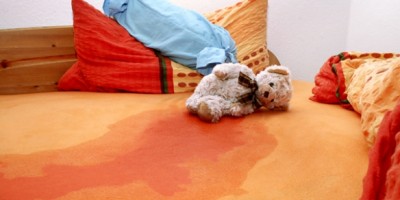Classification of enuresis
Classification enuresis distinguishes such kinds of disease - primary enuresis secondary enuresis, in turn, it is night or day, complicated or uncomplicated. But this classification is somewhat arbitrary.
Primary enuresis is a violation of urination in a child after five years, which lasts from birth at present time without interruption. That is, the conditioned reflex to urinate during the night the child does not. This is the most common form of enuresis is approximately 75%.
Secondary enerez characterized by impaired urination in children after stable micturition reflex for from three months to six months. Typically, secondary enuresis occurs as a consequence of the transferred trauma, infection or intoxication.
Uncomplicated enuresis occurs without any visible abnormalities in the urine analysis, and complicated, in turn, is accompanied by the presence of urinary tract infections, neurosis, or abnormalities of the urinary system.
Also classify enuresis can be a time not to control urination at day, night or mixed. In course of the disease distinguish between easy, medium or hard enuresis. Easy for means not control urination 1 or 2 times per week, the average - up to five times per week and heavy for enuresis is characterized by the fact that the child urinates during sleep once or twice and it does not wake up.
Sometimes bedwetting is classified for reasons of its manifestation in the neurotic or neurosis. Neurotic enuresis is usually caused by stress, fear, etc. and a secondary course of the disease. Neurosis enuresis is a delay in the formation of the micturition reflex.



